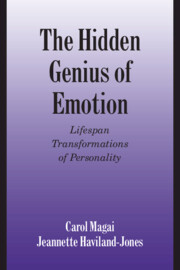Book contents
- Frontmatter
- Contents
- Preface
- Part I Introduction
- Part II Emotion as the Integrative Link in Social and Personality Development
- Part III Emotion as the Link in Intellectual Work
- 6 Wisdom and Passion
- 7 Cognitive Stages and Joy, Surprise
- 8 Cartesian Logic and Anger, Fear
- 9 Dialectical Logic and Excitement, Disgust, and Shame
- Part IV Emotion as the Link in Therapeutic Behavior
- Part V Presenting a New View
- Appendix
- References
- Subject Index
- Author Index
- Cambridge Cultural Social Studies
8 - Cartesian Logic and Anger, Fear
Published online by Cambridge University Press: 25 June 2009
- Frontmatter
- Contents
- Preface
- Part I Introduction
- Part II Emotion as the Integrative Link in Social and Personality Development
- Part III Emotion as the Link in Intellectual Work
- 6 Wisdom and Passion
- 7 Cognitive Stages and Joy, Surprise
- 8 Cartesian Logic and Anger, Fear
- 9 Dialectical Logic and Excitement, Disgust, and Shame
- Part IV Emotion as the Link in Therapeutic Behavior
- Part V Presenting a New View
- Appendix
- References
- Subject Index
- Author Index
- Cambridge Cultural Social Studies
Summary
Like stoicism, a school of philosophy which originated some twenty-five hundred years ago, RET holds that there are virtually no legitimate reasons for people to make themselves terribly upset, hysterical, or emotionally disturbed, no matter what kind of psychological or verbal stimuli are impinging on them. It encourages them to feel strong appropriate emotions – such as sorrow, regret, displeasure, annoyance, rebellion, and determination to change unpleasant social conditions. But it holds that when they experience certain self-defeating and inappropriate emotions – such as guilt, depression, rage, or feelings of worthlessness – they are adding an unverifiable, magical hypothesis (that things ought or must be different) to their empirically based view (that certain things and acts are reprehensible or inefficient and that something would better be done about changing them [italics added].
Albert Ellis (1973, p. 56)As we began in the previous section on Rogers with a single paragraph, we can begin with a single paragraph to orient ourselves to Ellis's ideoaffective positions in his theoretical work as well. A little appreciated facet of personality is that people express their personality in everything they do. The way a person moves his face or body, the words he or she chooses, the context in which the expressions occur – these are all aspects of personality. Therefore, even a single statement can reveal essential features of a person.
- Type
- Chapter
- Information
- The Hidden Genius of EmotionLifespan Transformations of Personality, pp. 285 - 332Publisher: Cambridge University PressPrint publication year: 2002



